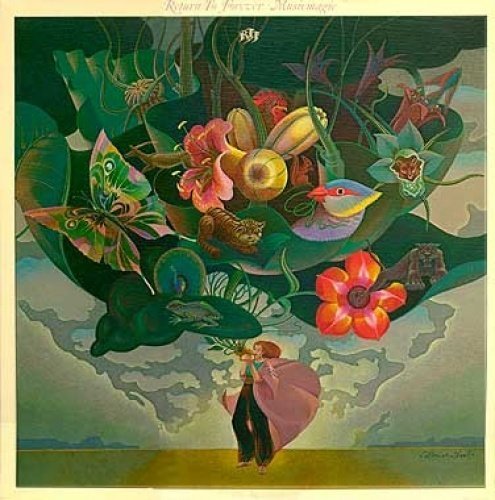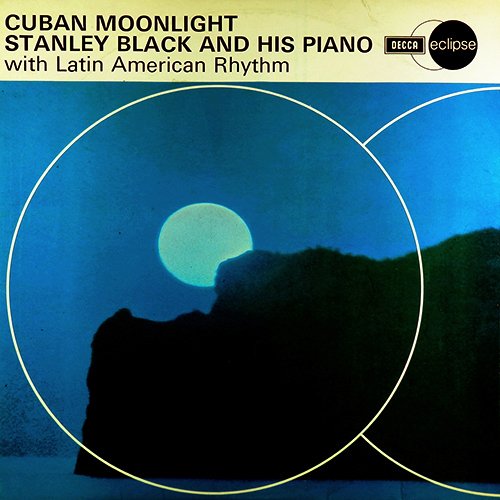Ricky Nelson - More Songs By Ricky (Reissue) (1960/2005)
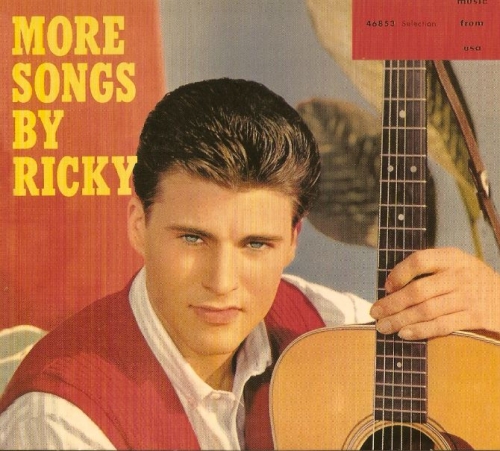
Artist: Ricky Nelson
Title: More Songs By Ricky
Year Of Release: 1960/2005
Label: MAM Productions
Genre: Rock'n'Roll, Rockabilly
Quality: Flac (image, .cue, log)
Total Time: 42:51
Total Size: 271 Mb (covers)
WebSite: Album Preview
Title: More Songs By Ricky
Year Of Release: 1960/2005
Label: MAM Productions
Genre: Rock'n'Roll, Rockabilly
Quality: Flac (image, .cue, log)
Total Time: 42:51
Total Size: 271 Mb (covers)
WebSite: Album Preview
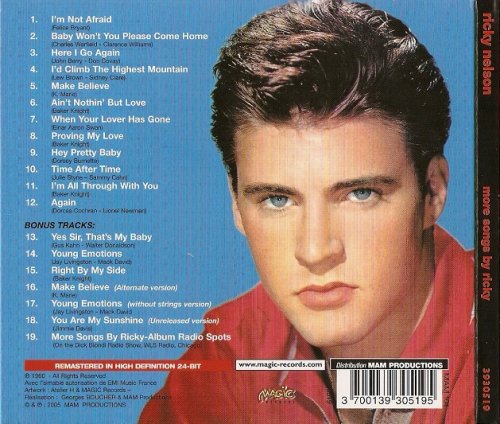
Tracklist:
01. I'm Not Afraid
02. Baby Wont You Please Come Home
03. Here I Go Again
04. I'd Climb The Highest Mountain
05. Make Believe
06. Ain't Nothin But Love
07. When Your Lover Has Gone
08. Proving My Love
09. Hey Pretty Baby
10. Time After Time
11. I'm All Through With You
12. Again
13. Yes Sir, That's My Baby
14. Young Emotions
15. Right By My Side
16. Make Believe
17. Young Emotions
18. You Are My Sunshine
19. More Songs By Ricky-Album Radio Spots
Eight of Ricky Nelson's first nine singles hit the Top Ten (sometimes even the B-sides made the Top Ten) and seven went gold. The string was broken in the fall of 1959, and though "I Wanna Be Loved," his tenth single, and "Young Emotions," his 11th, went Top 20, changes were clearly in order. The rockabilly Nelson loved and had imitated was out of fashion, replaced by softer pop music, some of it in a neo-big band style. On More Songs by Ricky, his first album in 11 months, Nelson shifted gears. One change was probably inevitable: Johnny and Dorsey Burnette, upon whom Nelson had relied for material, had launched their own solo careers and were less available to him, providing only one title, Dorsey's characteristic "Hey Pretty Baby." Nelson's other songwriting standby, Baker Knight, had three songs on the LP, but he too was adapting to the new style. His "Ain't Nothin' But Love," like another of the album's songs, "Here I Go Again," sounded a lot like the horn-filled productions of Lloyd Price, who had replaced Nelson as the country's second biggest pop singles artist in 1959. Horns, in fact, abounded on the record, particularly a saxophone that took several fat solos. Without the Burnettes, Nelson turned back to the music of his bandleader father Ozzie, cutting covers of songs from the 1920s ("Baby Won't You Please Come Home," "I'd Climb the Highest Mountain"), the 1930s ("When Your Lover Has Gone"), and the 1940s ("Time After Time," "Again") in arrangements that incorporated not only horns, but also strings and chirpy female backup vocals. It was all a big change from Nelson's previous recordings, and it did not restore his commercial fortunes.
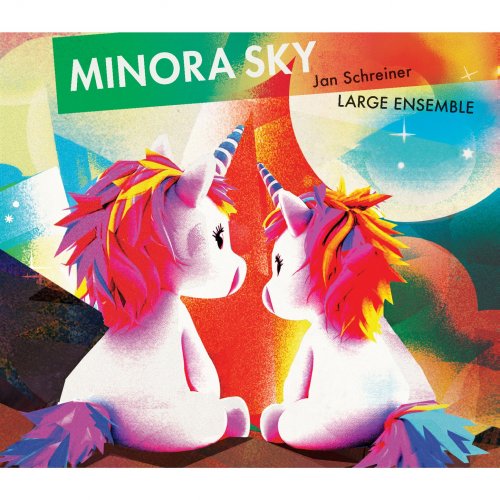
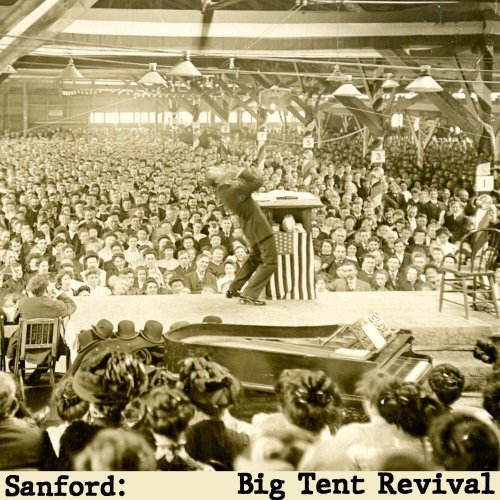
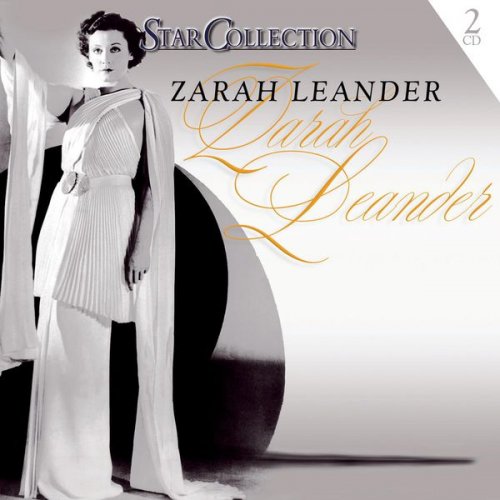
![Larry Coryell - Major Jazz Minor Blues (1998) [CDRip] Larry Coryell - Major Jazz Minor Blues (1998) [CDRip]](https://www.dibpic.com/uploads/posts/2026-02/1771860317_5.jpg)
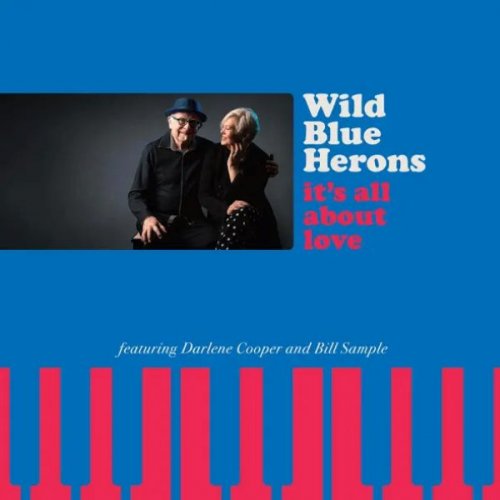
![Ex Novo Ensemble - Claudio Ambrosini: Chamber Music (2020) [Hi-Res] Ex Novo Ensemble - Claudio Ambrosini: Chamber Music (2020) [Hi-Res]](https://img.israbox.com/img/2026-02/22/z541qb9ul4q390uxlw1d9iak3.jpg)

